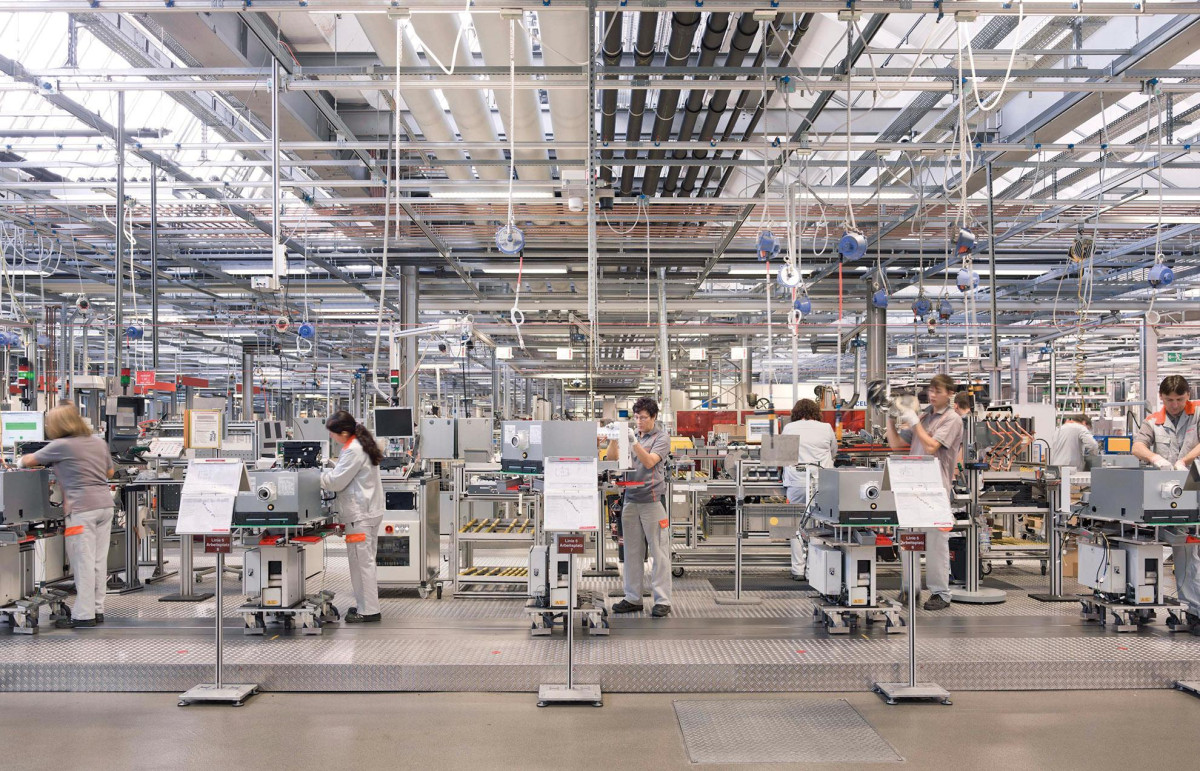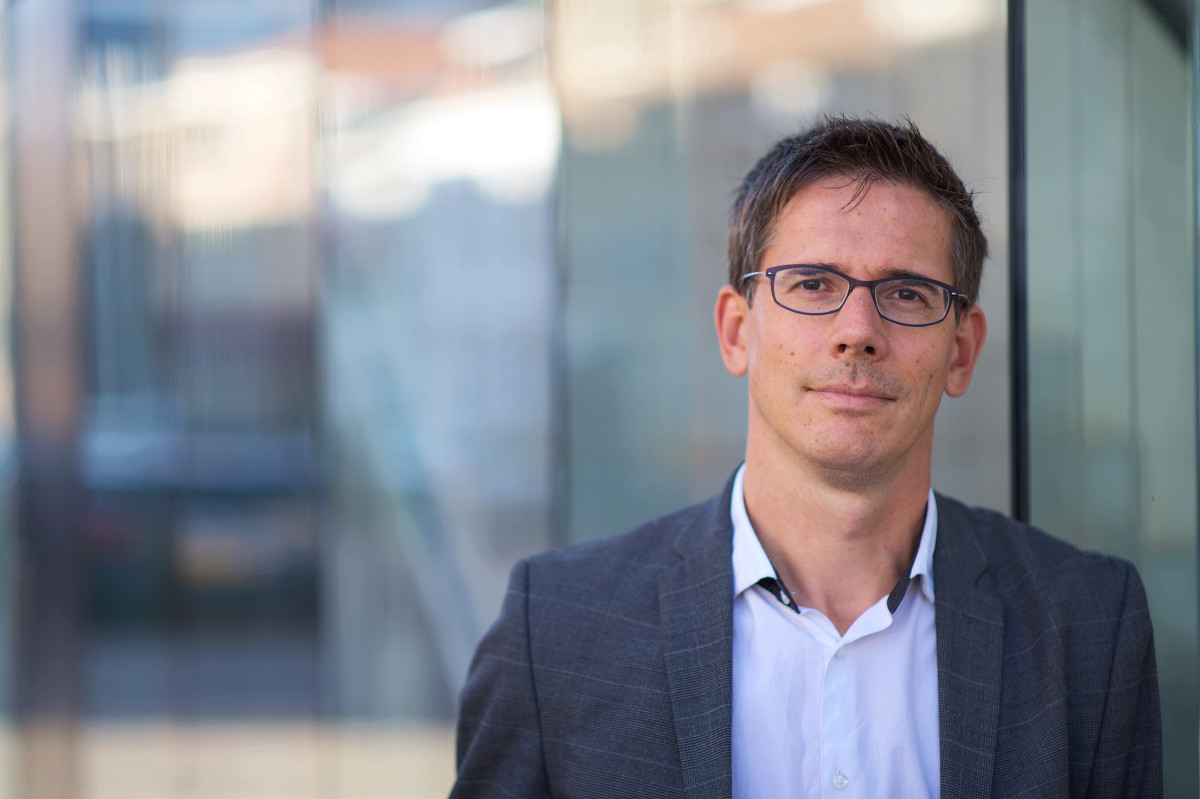Green Deal 2.0 must trigger investments in European industry and infrastructure – EU lawmaker
Clean Energy Wire: 2024 is the year of the European elections. What would you say is at stake for climate and energy?
Bas Eickhout: Basically, the follow-up to the Green Deal.
We need to broaden the climate agenda in this campaign. In the last EU elections in 2019, climate was really a topic on its own, but it will be more complicated in 2024. Some people, of course, will vote for a certain party simply because they are concerned about climate. However, for many others this topic is connected to issues like the economic development and of course, the social security of people. We need to really make clear why the Green Deal is also an industrial policy, and a social policy.
The election result will determine to a large extent how the new Commission will shape the follow-up to the Green Deal. Let us assume – and this is an important assumption – Ursula von der Leyen will remain Commission president. She will definitely present a Green Deal 2.0. However, the election results will determine to a large degree what this means.
If it is not von der Leyen leading the next Commission, then we really do not know what will happen with regards to the follow-up to the Green Deal.
What is your idea of a Green Deal 2.0?
Green Deal 2.0 is investment in the sectors that now really need to speed up the transition. The easiest one is probably energy where the transition is in full swing. The largest investments must be in the European grids.
However, our industry needs massive investments to transition away from gases to electricity, which will be a huge challenge for us. We should offer an investment programme. And agriculture is another sector where reform has failed so far, but must be tackled with the Green Deal follow-up.
Can you talk a bit more about European industry? What is at stake?
The most important issue in the coming years will be Europe’s position in the world, including the position of European industry. You can already feel this in Germany, where the question is whether the industrial heartland of the country can survive. This discussion will become more European.
Whether we like it or not, other big players in the world are throwing a lot of money at their industry and of course we can complain about it, but it will in the end draw away some of the industry. Some countries here in the Gulf region or northern Africa have big plans for hydrogen. At the moment, we are trying to tell them to export their green hydrogen to Europe, and the industry remains there. I am not so sure that this is how it will be in the future.
With the industry transition, it becomes a lot less logical for a company to stay somewhere. At the moment, there is a lot of vested interest in staying in Europe. However, if you need to open a new production site, the decision might be different. German BASF, for example, might have a lot of cultural and historic and other reasons to stay. However, at a certain moment CEOs will rethink this.
What can the EU do about it?
The question is whether the pressure of climate policy will push our industry to leave, or whether we grasp the opportunity to make the new industry settle in Europe as well. We must give companies clarity, investments, predictability, which the Green Deal should deliver.
All of this is going to be a massive debate and must be part of the Green Deal 2.0.
A lot of politicians still do not recognise the seriousness of the situation, certainly not in Germany. I am sometimes really astonished how little debate there is in the country on the lack of investments in the entire infrastructure. And Germany could become a symbol for the rest of Europe for what happens if we do not invest, knowing that the rest of the world is throwing a lot of money into this.
The U.S. elections next year will not change the global situation in this regard. Should Joe Biden be re-elected president, there will be more of this investment policy. Should Donald Trump win, there could be even more of this kind of America-first approach. China will also keep investing, down the supply chains.
What are other big climate issues in Europe in 2024?
In climate policy, we will have a discussion about the 2040 target, because we are obliged by the climate law and international negotiations. However, what we will do for reaching the 2040 target will of course also be determined by the election results.
At the beginning of February, the Commission will present its plan for reaching the 2040 target, and the new climate commissioner Wopke Hoekstra promised that he would plea for a target to reduce greenhouse gas emissions by at least 90 percent by 2040.
I would expect a document with three scenarios where the middle scenario aims for 90 percent. What will be interesting to see is that the Commission will have to lay out energy transition pathways to achieve the target, to show how each sector has to change - because no sector can be left out of the equation if we look at 2040. The energy sector will have to be close to zero emissions by then, industry will also be key. Most of both sectors’ emissions are covered by the EU Emissions Trading System [EU ETS], and they are supposed to be zero by 2039, with the current legislation.
We should expect the debate about the 2040 target to provoke a lot of discussions for each sector. The final decision on it will probably be taken only after the European elections. The Council is expected to discuss it in June, the newly-elected Commission president will have to outline their proposals when she or he starts in summer.
Will an issue like the 2040 climate target play a role in the EU election campaign? Is this something voters are interested in?
Maybe not the target per se, because it is a bit of an abstract number looking far into the future. However, when the debate focusses on the different sectors this could change.
At the start of 2024, the European Scientific Advisory Board on Climate Change is expected to present a report on how we are doing regarding the 2030 targets. What I hear is that the message will be that it is unclear whether we will reach them, with a special focus on transport, buildings and agriculture, but also the challenges for industry.
The combination of difficulties in reaching the 2030 target, and then on top of that the need to go beyond in 2040, will spark a debate about the difficulties in the different sectors, which in turn will spark discussions in the EU election campaign.
Where do you see the European Parliament shift politically after the election?
The far right will increase their strength. This will raise the pressure on the EPP to make clear where they stand. That is exactly the discussion you are having in Germany: how to relate to the AfD. At the European level you have more and more EPP voices saying we need to work with the far right, as they are doing already in Italy, Spain, Sweden, and in Finland.
The big win for Donald Tusk in the Polish election has been very crucial in that sense, because working with the far right for Poland would mean Tusk working with PiS, which is a non-starter. So, I think the EPP also has to look to the centre – which will get smaller. That could mean the Greens’ voice becomes more pivotal.
Overall, the parliament will become more complicated, more unpredictable. However, we Greens have a chance of being more influential towards the new Commission – with the assumption it is going to be von der Leyen who will lead it.



